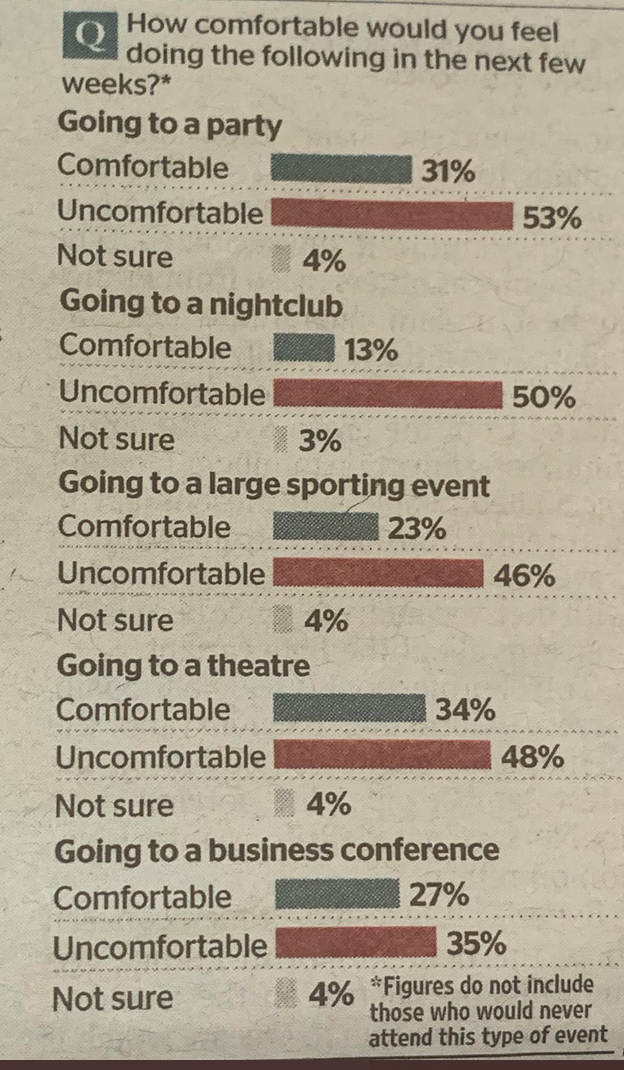The press performance of Cinderella on Monday got cancelled, and so did last night’s “gala opening”; Andrew Lloyd Webber has now threatened to pull the plug on the entire show…. or has he?
Having previously eagerly embraced the government (and Daily Mail’s) “freedom day” rhetoric for Monday’s easing of most COVID restrictions that was going to enable theatres to re-open at full capacity, Andrew Lloyd Webber that evening issued a statement that said that “Freedom Day has turned into closure day.”
Many theatre fans took to twitter and theatre bulletin boards to speculate as to whether to take the statement at face value: was he indeed bringing the shutters down on his new production forever, that was due to have a press performance on Monday ahead of last night’s planned (already delayed) “gala opening” that had last been scheduled for July 14?
Or was he — yet again — making a dramatic bid for headlines, threatening to throw his toys out of the pram and relaunch the show somewhere else more hospitable (paging Korea, where his Phantom of the Opera was the first global production to re-open with very different safety protocols in place)?
There has, it is true, been a fundamental failure of leadership throughout this pandemic, whether by the government at every stage of it, or more latterly by SOLT and UK Theatres, who may have made “suggestions” for safety protocols, but have failed to secure industry-wide compliance or policy on what measures should have been adopted from yesterday.
It’s hardly as if Monday’s government relaxation on rules came as a surprise: Boris Johnson announced he was intent on letting them go ahead a full week ago. Julian Bird, CEO of both SOLT and UK Theatres, even welcomed them at the time as “a lifeline” for the industry.
Yet even a simple measure, like asking for enforcement of mask wearing to continue in theatres, was left at the door of the customer, with the SOLT safety statement saying: “The majority of Covid safety measures will remain, including a strong recommendation of the use of face coverings, as advised by the Government.”
Julian Bird commented,
“The thousands of people who have already come back to the theatre since 17 May have been overwhelmingly positive about their experience and how safe and comfortable they felt. As we increase capacity, we want to ensure that this positive audience sentiment remains. For this reason, we hope audience members show respect for fellow theatregoers and staff by continuing to wear face coverings when coming into our venues and moving around them.”
Hoping that audience members “show respect for fellow theatregoers and staff” is very different to mandating it.
Every theatre was left, too, to make up its own rules as to what it expected audiences to provide by way of proof of their COVID status. On Sunday afternoon, Cinderella issued an instruction telling theatregoers who were due to attend on Monday that they would have to bring proof of a negative test — or face a test at the theatre. Come from Away, meanwhile, due to resume performances on Thursday, is asking audiences for proof of full vaccination or a current negative test.
As it is, audiences are left scrambling for clear instructions — and being informed very late in the day if and when their shows are actually cancelled. This may be unavoidable, if a new case arises suddenly. But the announcement of the cancellation of Monday’s performance of Cinderella only came around 4pm; even though both performances of the show had ALREADY been cancelled on Saturday. Under track and trace rules, if someone is in prolonged contact (i.e. over 15 minutes) with a person who tests positive, self-isolation is required. The positive test at Cinderella that led to Saturday’s cancellation hadn’t been overturned in the meantime.
Meanwhile, too, I became belatedly aware, via agent Helen Clarkson, that it isn’t just audiences who are left significantly out of pocket by a late cancellation: actors are now unpaid if a performance is cancelled for a COVID-related reasons.
So not only have audiences been left in the dark by SOLT/UK Theatres failure to co-ordinate a policy, they have ALSO sold performers — the very people who are needed to bring the West End back — down the river, after 14 months of no income at all in many cases, to protect producers’ interests first.
Producers are crying about their need for a government-backed insurance scheme to absorb some of their risks, but they’ve freely shunted most of the risk onto their casts and crews instead.
This is an industry-wide crisis, and SOLT are not only failing to lead, they are actively contributing to it.
And a bigger, unanswered question arising from the re-opening of theatres at the POTENTIAL for full capacity houses: it may be a moot point if the audiences are simply not there to fill those extra seats.
A survey in Monday’s TIMES was headlined: “Most people will still avoid parties, clubs and theatres.”
And it offered this dispiriting result.

It may be that the only people eager for the theatre to return (apart from diehard fans) are theatre critics and performers whose income depends on it.
